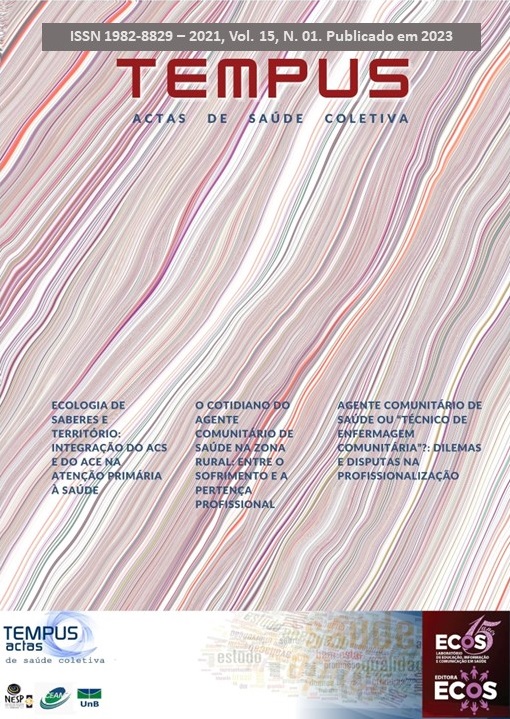Abstract
The Community Health Agent (CHA) is strategic in expanding access to health care and prevention. During a pandemic, surveillance needs to know local practices and the ancestral knowledge of a community, even though the hegemonic biomedical model linked to capitalist interests excludes other knowledge. The objective of this study is to identify and analyze the knowledge that makes up the CHA work process. Based on the Ecology of Knowledges, research with focus groups was developed on 2 family health strategies in the municipality of Caucaia/CE. To reinforce the CHA's legitimacy as a health team it was identified an overlap and the abdication of ancestral knowledge. The desire to expand the resoluteness of theirs activities can only seem to be accepted through nursing training and abdication of popular knowledge. It was concluded that the professional performance by regulatory educative strategies distanced the CHA from the real objective of its work. The withdrawal from the model adopted by the community and the non-expansion of its participation in the health team is a conflict. The Ecology of Knowledges can allow the coexistence of different perceptions and the confrontation of hegemonic knowledge, providing reconciliation among knowledge, with new articulations in the prevention model in an epistemology that enables a new model of surveillance.
Keywords: Community Health Workers, Working conditions, Surveillance of the Workers Health; Ecology of Knowledge
A Tempus garante critérios rigorosos, por meio de avaliação sistemática. Os autores se responsabilizam pela veracidade e ineditismo do trabalho cabendo a eles a cessão de direitos de publicação à revista. A confiabilidade dos conteúdos e a marca própria de apresentação tem como objetivo uma comunicação personalizada, adaptada aos padrões da revista, na medida em que adota critérios de excelência exigidos por seus usuários e especialistas, considerando os rigores da comunicação científica. Os autores devem especificar sua contribuição individual na concepção, delineamento, execução do trabalho, análise ou interpretação dos dados, redação e aprovação final do manuscrito. Incluir Fontes de financiamento e de apoio logístico das pesquisas. Ao final da submissão do artigo, os autores devem enviar uma declaração de cessão de direitos de publicação à Revista TEMPUS , assinada e no formato PDF (Portable Document Format ): Modelo da declaração de cessão de direitos.
